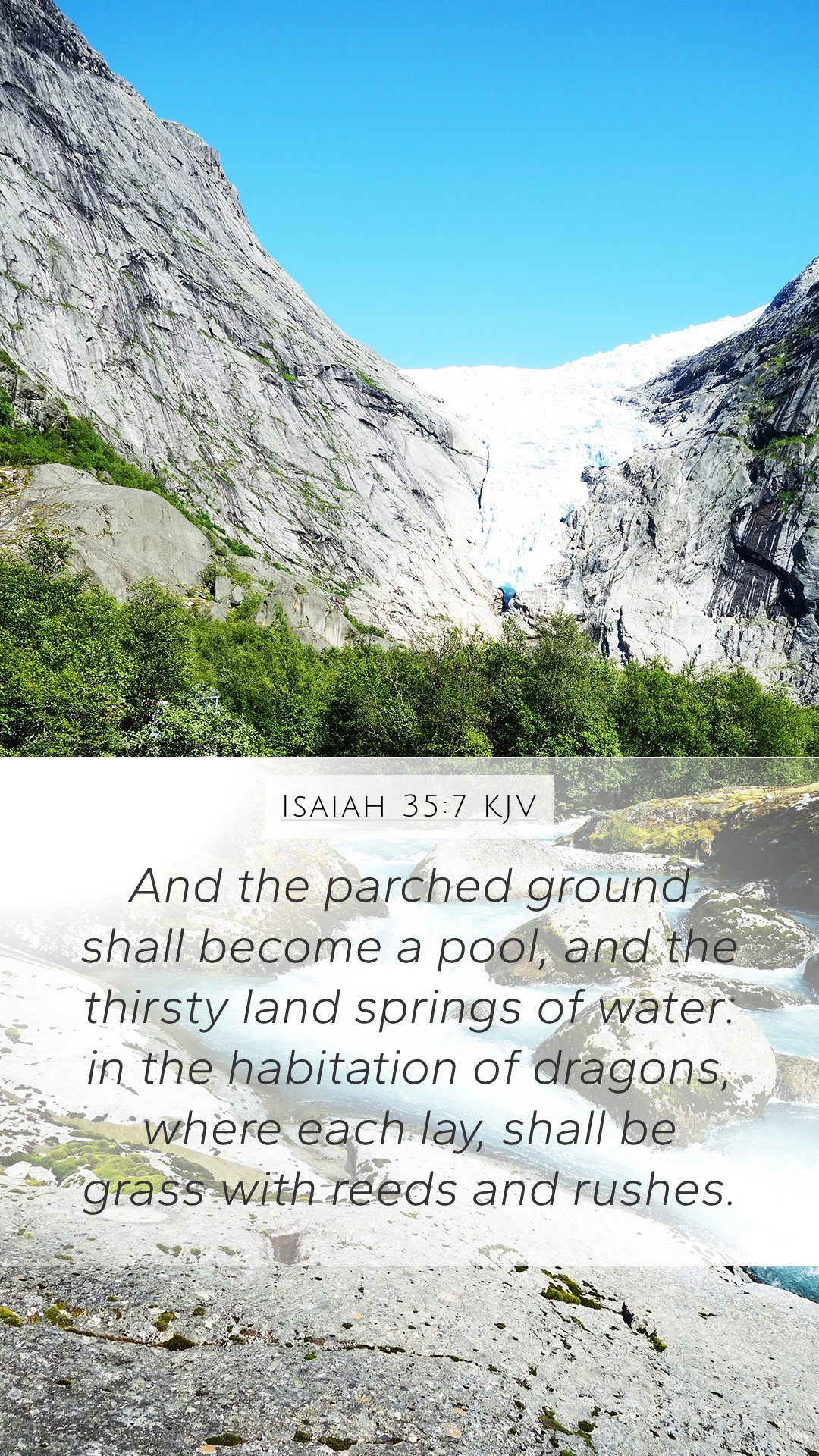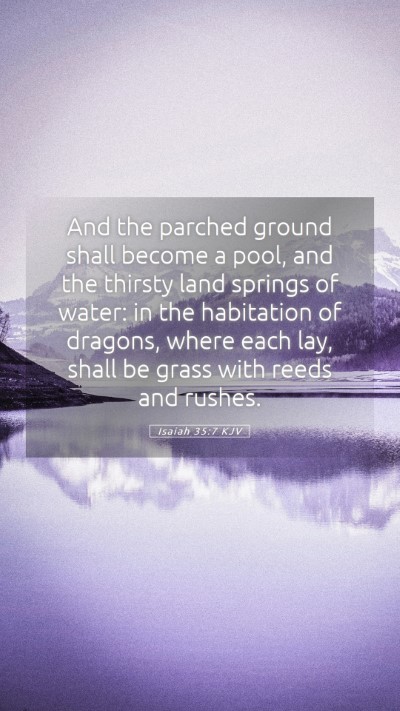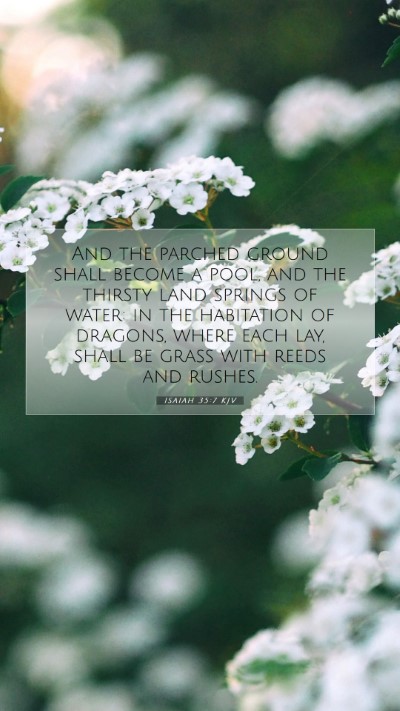Understanding Isaiah 35:7
In the verse Isaiah 35:7, we find a powerful message that holds both immediate and prophetic significance. This passage speaks about the transformational power of God and the restoration He brings, particularly towards the barren and desolate landscapes.
Bible Verse Context
Isaiah prophesies during a time of turmoil and uncertainty for the Israelites. His messages often oscillate between judgment and hope. In this chapter, he focuses on a future hope—the coming of God's kingdom.
Verse Breakdown
Isaiah 35:7 (KJV) states: "And the parched ground shall become a pool, and the thirsty land springs of water: in the habitation of dragons, where each lay, shall be grass with reeds and rushes."
Key Phrase Analysis
- Parched ground: Represents a spiritually and physically desolate state.
- Pool and springs of water: Symbolizes the restoration and blessings from God, indicative of spiritual rejuvenation.
- Habitation of dragons: Describes a previously desolate place now transformed into a garden.
Bible Verse Meanings
From the commentaries of respected theologians like Matthew Henry, Albert Barnes, and Adam Clarke, we gather the following insights:
Matthew Henry’s Commentary
Matthew Henry emphasizes the miraculous nature of God's provisions. He sees this transformation as an allegorical representation of the spiritual revival that comes with God’s presence. The imagery of water in dry land signifies the grace and sustenance that God offers to those in despair. Henry suggests that the fulfillment of this promise is both immediate in the time of Isaiah and eschatological in the greater scope of God’s redemptive plan.
Albert Barnes’ Commentary
Albert Barnes points out the metaphor of transformation in this verse. He interprets the 'parched ground' as a symbol of spiritual barrenness and highlights that the 'springs of water' foreshadow the abundant life found in Christ. Barnes also connects this transformation to the broader narrative of redemption, illustrating how desolation can become a place of fertility and life through divine intervention.
Adam Clarke’s Commentary
Adam Clarke focuses on the imagery of the 'dragons' and 'grass.' He interprets the dragons as representations of evil and desolation, and the subsequent growth of grass as a sign of new life and hope. Clarke understands this as a promise that God can restore any situation, no matter how dire. He reinforces the concept that God can take the most desolate of places and bring forth life, symbolizing His power to redeem.
Spiritual Applications
This verse holds significant applications for personal and communal spiritual life:
- Hope in Despair: Just as the dry ground receives water, believers can find hope in God during their difficult times.
- Transformation through Faith: The promise of God’s provision teaches us about the potential for transformation in our lives and communities.
- God's Abundant Grace: Understanding this passage encourages recognition of God’s gracious hand at work in our lives.
Cross References
Isaiah 35:7 relates to several other scripture passages that reinforce its message:
- Isaiah 41:18: "I will open rivers in high places, and fountains in the midst of valleys..."
- Psalms 107:35: "He turneth the wilderness into a standing water..."
- Revelation 21:6: "I will give unto him that is athirst of the fountain of the water of life freely."
Conclusion
Isaiah 35:7 encapsulates a profound promise of restoration and life, both physically and spiritually. Through the insights of esteemed biblical commentators, we see that this verse not only provides hope for the Israelites but also carries a timeless message for all believers today. It teaches us that no matter how arid our circumstances may seem, God's ability to transform and restore is beyond comprehension. As we study this verse, let us embrace its meaning and apply it to our lives, fostering an understanding of Scripture that transcends our immediate contexts.


